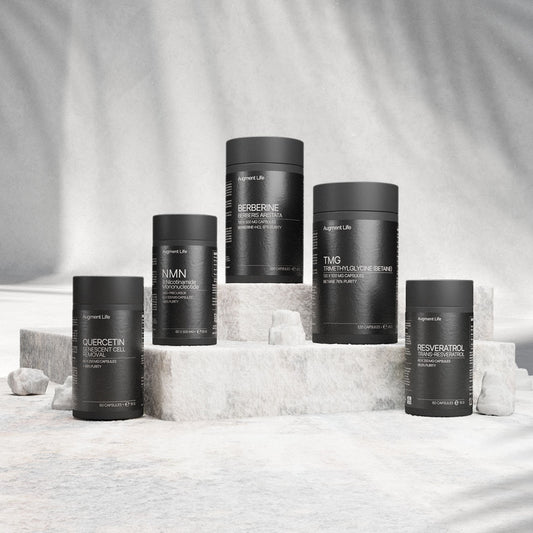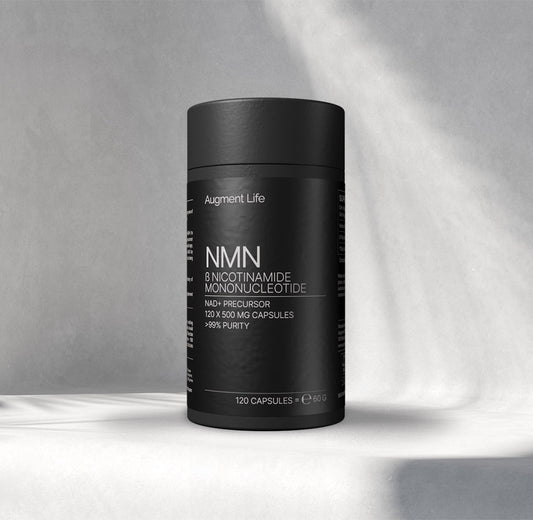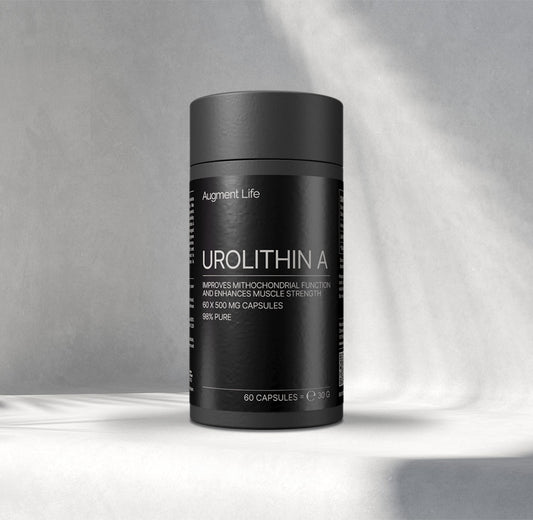Age tests are all the rage right now, especially in the longevity community. You might have seen commercials and ads promoting tests that can tell you how old your body and metabolism really are, not just how long you exist on the planet Earth.
How do biological age tests work, and what do they measure? More importantly, how much do age tests cost and how accurate are they? Does the information you get on your biological health actually pay off in the long term? Keep reading this article and find out the full scoop!
What are age tests?
If you're not familiar with the recent surge in popularity of biological age tests, you might be wondering what they even are. Surely, a simple age test is checking your birth certificate, and subtracting your birth year from the current year. However, that's only calculating your chronological age.
Believe it or not, your actual biological age, which is based on your health, often has very little to do with your chronological age. When the health of your cells is measured (we'll explain later what that means) and the results are compared to the average results of other people in your age group, you maybe won't fit into it. Maybe your health status will be more similar to somebody chronologically much older, or much younger. That's how you get a measure of your biological age (1).
However, determining somebody's biological age isn't even closely as straightforward as determining chronological age. We will discuss different types of biological age tests and how they work in the sections below.
Different types of age tests
As we mentioned previously, biological age tests will often test one parameter of your health. This can perhaps be the status of your DNA, or sugars attached to your cells, or the number of times your cells replicated, and so on.
Some simpler age tests can compare your muscle strength to the average strength of other people in the same age group, and so on. Let's look at some brief explanations of each of these methods.
Epigenetic age tests
Can you tell someone's age by a DNA test? Sure you can! Epigenetic tests do exactly that, they check the status of modifications present on your DNA molecules.
Here is a quote that very simply describes what epigenetics is:
"Epigenetics refers to how your behaviors and environment can cause changes that affect the way your genes work. Unlike genetic changes (mutations), epigenetic changes are reversible and do not change the sequence of DNA bases, but they can change how your body reads a DNA sequence."
Epigenetic changes in your DNA are signals for cells to read, that tell them how to process and replicate your DNA. Our lifestyles can't cause a proper mutation to the DNA (like radiation can, for example), but they can cause a modification in one or more of these epigenetic signals. These patterns change with age and are influenced by factors such as stress, diet, and lifestyle, and can be measured. The idea was first proposed by professor Steve Horvath at the University of California (2).
Some of the already famous and very well-known epigenetic tests are:
- Horvath Clock: One of the first and most well-known epigenetic clocks that predict biological age using specific DNA methylation sites.
- GrimAge: A refinement of the Horvath Clock that incorporates additional predictors of mortality.
- PhenoAge: Focuses on a wider range of health outcomes and disease risks.
Epigenetic tests are highly accurate for predicting aging-related health risks and mortality. They are often used in research, health optimization, and longevity studies.
Telomere length tests
Telomere length tests were extremely popular a couple of years ago, and the length of telomeres is still a very important parameter the longevity field studies.
Telomeres are protective caps at the ends of chromosomes, small formations that pack huge amounts of DNA. Every time your cell reproduces, it needs to unpack the DNA and remove a bit of those protective caps first. This is how scientists can track how many times a specific cell has divided. Shortened telomeres are not only connected to an older age but also to the development of various diseases. For now, this is mostly done only in blood cells (3).
The problem with this type of age test is the limitation of the type of cells in which you can measure the telomerase length. Not all cells multiply in the same way. Some cells in our bodies never multiply. Therefore, the test is simultaneously very accurate only for one type of tissue, and very inaccurate for every other tissue in your body.
Biomarker age tests
Many molecules can be considered biomarkers of a specific organ or tissue. Usually, scientists choose one representative molecule to track the health of certain parts of your body. For example, cholesterol levels are biomarkers for your cardiovascular health, and the C-reactive protein (CRP) is a biomarker for inflammation. Biomarkers are molecules that are often present in a high amount when a disease develops, but they can also be the most often found molecule in one health system.
Biomarker age tests measure the levels of a certain biomarker and compare them to the average levels of healthy individuals of different age groups. They can give general information on the status of your health, but only on one specific one (4).
If you currently suffer from a temporary inflammation process in your body, your CRP levels will be high, and probably not representative of your overall health when you're not under inflammation. Also, if you know your cholesterol levels, that won't tell you much about your brain or kidney health.
Advanced biomarker age tests can give you more precise results because they will measure metabolic products or protein profiles of your body. These come with a higher price, too.
Glycan tests
Glycan tests are fairly new on the market, and they measure an important and often forgotten feature of your health - immunity. These tests analyze glycosylation patterns, primarily on antibodies. Glycans are sugars attached to your proteins, and all antibodies are proteins. Different types of sugars can arrange themselves in many ways, and so they form intricate patterns.
Glycosylation patterns on your antibodies can determine how they interact when presented with immune threats. They change with age, often for the worse. Scientists can test and discover these, and there are already smaller databases on how glycosylation patterns typically look at a given age (5).
Some key features of glycan tests are:
- They're highly sensitive.
- They can accurately predict and monitor systemic inflammation.
- They provide insights into immune system health.
These tests are currently not one of the more accurate ones, but they're rapidly developing.
Functional age tests
As their name suggests, functional age tests will measure some function of your body and compare it to the average result of people in your age group. If you score better than the average, your biological age will seem younger than you chronologically are.
Some of the parameters measured can be (6):
- grip strength,
- walking speed,
- lung function,
- memory tests,
- fat and muscle content.
Functional age tests are among the most unreliable ones because they depend on too many factors. For example, if you're fatigued, you won't perform very well on any of the exercise-related tests.
A good example is commonly available bathroom and gym scales, which measure bodily parameters like fat and muscle percentages, bone mass, and protein amounts. Based on all measurements, they generally also predict metabolic age. How do bathroom scales do this?
When you step onto the scale barefoot, the scale will send a small electric current through your feet and into your body. The scale will read out the resistance the current "found" in your body, and based on that it will calculate how much muscle and fat you have. Muscles are more electrically conductive than fat, so the more muscles you have, the more electricity will go through the measurement.
What could be the issue here? Well, for example, the measurement can significantly change depending on how hydrated you are. If you drank a bunch of water before you step on the scale, the scale will think you have more muscles compared to when you're not hydrated at all. Why? Because water conducts electricity.
Are biological age tests accurate?
Biological age tests are not perfect but can be very useful. Their effectiveness depends on:
- Accuracy: Epigenetic tests are the most robust and validated, offering precise predictions of aging-related health risks. Telomere and biomarker tests are useful but less specific.
- Reproducibility: A big question for biological age tests is will you get the same result if you do the same test once or two more times? The answer is very often that these tests don't have any reproducibility, which makes the results you get questionable. Epigenetic tests usually have high reproducibility.
- Predictive Value: Many age tests, especially epigenetic ones, can accurately show if you're predisposed to developing genetically related diseases.
-
Limitations: Results often change if different people handle the sample, or if the database of data that's used to determine your biological age is very small. The higher the number of participants, the more reliable the statistical analysis will be.
Biological age tests cannot account for all aspects of aging, such as organ-specific aging or psychological factors.
What is the most accurate biological age test?
Currently, the most accurate biological age tests available today are epigenetic tests. That doesn't mean they can test every single thing that can age in your body, but they can come close to predicting your DNA age, which is the base of many other aging processes.
How much do age tests cost?
The price of different age tests mostly depends on how complex the test is, and how expensive is the scientific method behind it. The most expensive tests are usually also the most reliable ones because the science behind them takes the most time to perform.
Here is a small breakdown of biological age tests' costs:
- Epigenetic age tests - $100–$500+,
- Telomere Length Tests - $50–$200,
- Biomarker-Based Tests - $100–$400,
-
Functional Age Tests - $50–$100.
You will pay these amounts to perform the test once. Some companies may offer a follow-up test that can be included in the price. If you decide to change some of your habits and see if they affect your health status, you'll need to request and perform the age test again.
Conclusion
The conclusion is clear: No age test can capture the full aging spectrum. Aging is a complex process that spans years and involves many factors, from tissues, organs, and cells to mental health. Currently, no age test can accurately measure all of that, but some tests can come close to telling you the status of your cellular health.
Before you decide to purchase and perform an age test, do your research. Check what exactly is being measured, and how your results are compared to the database of other people's results. Also, check whether your sample will be tested in parallel at least two or three times for reproducibility. Consider what you want to find out from the age test, and if the test can only give you very limited data. Try to find a test that at least spans more factors than one, and can give you a thorough analysis of multiple aspects of your health.
Literature sources:
- Rapaport, L. (2024) Biological Age Tests: How They Work and if They’re Legitimate. Everyday Health.
- Horvath S. DNA methylation age of human tissues and cell types. Genome Biol. 2013;14(10):R115. doi: 10.1186/gb-2013-14-10-r115. Erratum in: Genome Biol. 2015 May 13;16:96. doi: 10.1186/s13059-015-0649-6. PMID: 24138928; PMCID: PMC4015143.
- Fuster JJ, Andrés V. Telomere biology and cardiovascular disease. Circ Res. 2006 Nov 24;99(11):1167-80. doi: 10.1161/01.RES.0000251281.00845.18. PMID: 17122447.
- Moqri M, Herzog C, Poganik JR, Ying K, Justice JN, Belsky DW, Higgins-Chen AT, Chen BH, Cohen AA, Fuellen G, Hägg S, Marioni RE, Widschwendter M, Fortney K, Fedichev PO, Zhavoronkov A, Barzilai N, Lasky-Su J, Kiel DP, Kennedy BK, Cummings S, Slagboom PE, Verdin E, Maier AB, Sebastiano V, Snyder MP, Gladyshev VN, Horvath S, Ferrucci L. Validation of biomarkers of aging. Nat Med. 2024 Feb;30(2):360-372. doi: 10.1038/s41591-023-02784-9. Epub 2024 Feb 14. PMID: 38355974; PMCID: PMC11090477.
- Krištić J, Vučković F, Menni C, Klarić L, Keser T, Beceheli I, Pučić-Baković M, Novokmet M, Mangino M, Thaqi K, Rudan P, Novokmet N, Sarac J, Missoni S, Kolčić I, Polašek O, Rudan I, Campbell H, Hayward C, Aulchenko Y, Valdes A, Wilson JF, Gornik O, Primorac D, Zoldoš V, Spector T, Lauc G. Glycans are a novel biomarker of chronological and biological ages. J Gerontol A Biol Sci Med Sci. 2014 Jul;69(7):779-89. doi: 10.1093/gerona/glt190. Epub 2013 Dec 10. PMID: 24325898; PMCID: PMC4049143.
- Wang Y, Meng T, Yang W, Yan M, Su X, Wang X, Chen L, Ren Y. Association of grip strength and comorbidities with all-cause mortality in the older hypertensive adults. Front Public Health. 2023 Jun 28;11:1162425. doi: 10.3389/fpubh.2023.1162425. PMID: 37457245; PMCID: PMC10345221.












